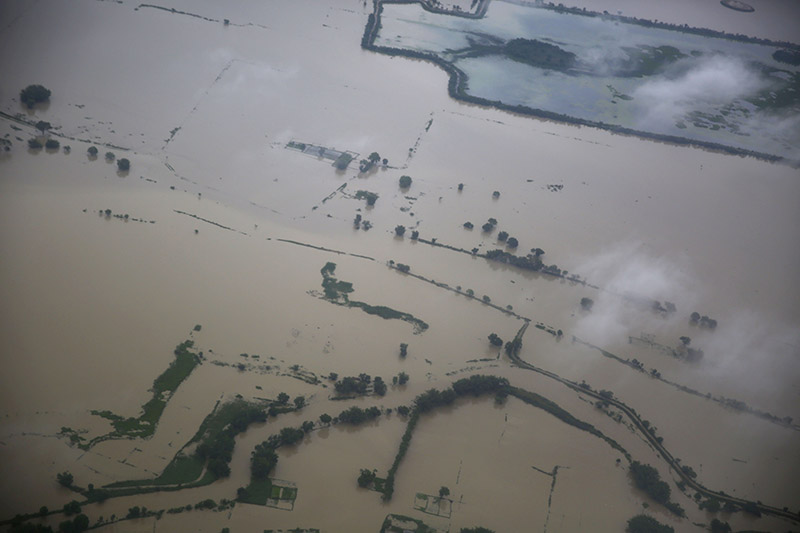Country faces challenges of COVID-19, monsoon related disasters
Kathmandu, June 20
At a time when the novel coronavirus pandemic has spread to 75 districts of Nepal, the country is soon likely to witness challenges of monsoon-induced disasters.
Experts have argued that monsoon-induced disasters should not be taken lightly as the country has been focusing on controlling the spread of coronavirus infection.
Expert on Disaster Risk Management Dr Krishna Devkota said the country is more likely to fight against multiple disasters this year with the beginning of monsoon season. “No matter the nature of natural disasters, we should not forget COVID-19 and have to maintain physical distancing to remain safe from the virus infection,” he said.
Over 9,000 people have been infected with the coronavirus and the country has faced immense economic crisis. Amid this crisis, the situation of monsoon-induced disasters is also appalling. According to Nepal Disaster Report-2019m released by Ministry of Home Affairs, almost 1,000 people lose their lives due to monsoon related disasters while causing Rs seven billion loss every year.
Nepal is ranked the most vulnerable country in South Asia in terms of deaths caused by monsoon-induced disasters. Globally, Nepal is ranked 4th and 11th in terms of its relative vulnerability to climate change and earthquakes, respectively.
It ranks 30th in terms of global risk for inundation, but the country lacks sound preparation to combat such natural disasters.
The study shows that 70 to 80 per cent population in the country is affected by one or the other natural disaster each year. It is said that 335,000 people are directly affected by such disasters every year and of them, 50 per cent are children.
Dr Devkota said Tarai region is most vulnerable to natural disasters.
He added that the region is now badly affected by the COV- ID-19 outbreak and is equally vulnerable to inundation during rainy season. Situation will turn ugly if such disasters are not properly managed with effective measures, according to Dr Devkota.
In view of the looming danger, Ministry of Home Affairs has recently approved disaster management procedures.
Minister Ram Bahadur Thapa has urged all stakeholders to support the government to combat natural disasters as the country is already facing hardship due to the deadly COVID-19 outbreak and huge resources and manpower have been moblised in the fight against the disease.
Experts have stressed on sound preparedness against monsoon-induced disaster. Concerns were raised on the role of local levels over incidents of monsoon induced disaster in the past. Landslide, flood and inundation occur concurrently across the country during monsoon. Therefore, experts have warned local levels to plan better and remain alert.
Staffers of Nepali Army, Nepal Police and Armed Police Force have been the frontline warriors during natural disasters. This year since they have been mobilised to prevent and control the coronavirus infection, security agencies may not be able to pay their attention to control monsoon-induced disaster like in the previous years.
However, security agencies claimed that they have already carried out preparedness against monsoon-induced disasters along with the activities for prevention and control of COVID-19.
NA Spokesperson Niraj Bahadur Shahi said, "There are separate units of security personnel to look after the COVID-19 and monsoon-induced disasters. Nepal Police has also been preparing to deal with monsoon-related disasters."
Preparedness is the most effective measure to prevent losses by monsoon-induced disasters such as floods, landslides, inundations and forest fire. However, ensuring sound preparedness against monsoon-induced disasters at a time when the country is reeling under COVID-19 is all the more challenging. Experts have suggested for sound coordination among the three tiers of the government to tackle the COVID-19 pandemic and possible monsoon-related disasters.
A version of this article appears in e-paper on June 22, 2020, of The Himalayan Times.



